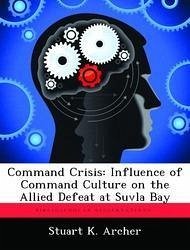
Defeating a Cause: Anatomy of Defeat for Conflicts Involving Non-Nation-States
Versandkostenfrei!
Versandfertig in über 4 Wochen
52,99 €
inkl. MwSt.

PAYBACK Punkte
26 °P sammeln!
This is a study about defeat, specifically addressing the question of whether and under what circumstances non-state actors will accept defeat. This study challenges conventional wisdom that victory and defeat have a reciprocal relationship. Regardless of whether one adversary perceives victory, the opponent must accept defeat to ensure an end to the conflict. This study proposes that traditional approaches to defeating nation-states offer little utility in defeating non-state actors, and a new approach is required. To induce defeat, the threat's will must be targeted not the threat's means. A...
This is a study about defeat, specifically addressing the question of whether and under what circumstances non-state actors will accept defeat. This study challenges conventional wisdom that victory and defeat have a reciprocal relationship. Regardless of whether one adversary perceives victory, the opponent must accept defeat to ensure an end to the conflict. This study proposes that traditional approaches to defeating nation-states offer little utility in defeating non-state actors, and a new approach is required. To induce defeat, the threat's will must be targeted not the threat's means. Attacking the threat's means is largely ineffective because of the strength of its will or more specifically his cause. In order to induce defeat on a non-state actor his cause must be negated. This study explores numerous defeat mechanisms, such as attrition, maneuver, and entropy as methods to induce defeat. In addition, this study explores the anthropological, sociological, and psychological aspects of defeat. However, this study does not really explore specific cultural and religious influences on defeat.














